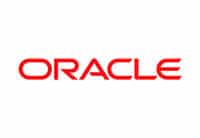The Oracle Data Integrator 12c: Advanced Integration and Development training and certification course will give you the a detailed overview of advanced techniques for using Oracle Data Integrator 12c (ODI). During the training, you will learn to implement high-performance movement and transformation of data among various platforms.
-
This in-depth training explains working with BA (Business Architecture) projects. The course demonstrates designing the forms, data definitions and rules.
The course includes delivering the training of modeling, implementing, playing and deploying the business processes, creating BPM Studio or Business Process Composer, measuring process-specific and standard both types of business indicators using BAM, and throwing up warnings in conditions that are abnormal.
-
In this course, you will experience the ease and flexibility that Oracle WebLogic Server for OCI has to offer for deployment of your Java applications on Oracle Cloud.
You will explore the quick provisioning and various administrative consoles in Oracle WLS for OCI and choose the desired one to efficiently manage your instances. Explore the options to secure a domain and learn to create data source.
-
This course offers the all right information to begin your journey with Oracle Coherence Cloud. This course will take you through some basics of networking, which is required to learn the concepts of Coherence Cloud. You will be exploring the capabilities and architecture of Coherence Cloud. You will learn to provision Coherence Cluster in a private and public subnet. Explore to use Resource Manager to view the cloud resources of a cluster. Learn to delete the cluster service. You will also learn to modify the operational override file and scale-out the cluster.
-
This OL8-SA1: Oracle Linux 8: System Administration I course is first in a series of three Oracle Linux 8 System Administration courses that covers the system administration tasks. The lab environment is validated against the latest Oracle Linux 8 release.
-
This is an advanced-level course that offers in-depth hands-on experience to candidates. The training provides exposure to high-level system administration tasks. In other words, it primarily polishes the skills learnt in the Oracle Solaris 11 System Administration course.
-
Oracle VM training is meant for systems administrators, as well as data center managers. The training is about virtualization technology in particular. Students understand how to use Oracle VM Server for x86, as well as Oracle VM Manager for building virtualization platform. You gain proficiency in installing and configuring Oracle VM Server for x86. The course makes candidates capable of using simple, as well as high-level cloning to develop virtual machines.
Participants also learn how to administer the lifecycle of virtual machines. They become proficient in preparing network interfaces and virtual disks. In addition, students gain knowledge about concepts like virtual machine administration, storage and network configuration, and repository and pool creation.
-
Oracle VM Server for x86: Implementation Ed 2 training course enables you how to enhance cloud effectiveness with rapid deployment of cloud resources and applications. During the class, you will gain how to administer, redistribute, troubleshoot and protect Oracle VM resources to ensure seamless and continuous access of your applications.
-
The Transition to Oracle Solaris 11 training and certification course will give you a detailed overview of the transition to Oracle Solaris 11 training builds on your system administration experience with Oracle Solaris 10.
-
Develop key insights into key concepts and features of Oracle Cloud Infrastructure (OCI). Identify how the OCI’s global distribution of infrastructure components can assist your enterprise, learn to extend your IT infrastructure with highly customizable Virtual Cloud Networks (VCN) and connectivity services. With network in place, launch your first compute instance, and define storage volumes.
Also learn to deploy a highly available web application utilizing services like load balancer and distributing infrastructure across multiple availability domains. Discover the various Oracle Database options available on OCI from VM DB to Autonomous Database to Bare Metal DB. With these OCI components in place, get insights to securing OCI, DNS, and understand OCI WAF capabilities and architecture.
-
Architect a cloud-based infrastructure using Oracle Cloud Infrastructure services. Building on your skills obtained from the Oracle Cloud Infrastructure Administration Essentials course, explore deeper into the Oracle Cloud Infrastructure services to design and implement a secure and scalable cloud solution that meets HA and DR requirements. Design secure networks with disaster recovery options, and explore database capacity planning and advanced database features on OCI. Also explore the gamut of new services on OCI such as Streaming, Events, and Functions.
-
Ansible provides you a solution to the tedious task of administering a server fleet. Ansible provides a platform for configuring and managing compute instances.
In this course, you will learn the basics of working with Ansible in OCI, including installation and configuration. Also, you will discover the benefits of Infrastructure as Code (IaC) via Ansible, understand and create the building blocks for Ansible to be used in the form of playbooks. Lastly you will be able to create playbooks and configure and manage resources on OCI.
-
In this course, you will learn to install the Go and Typescript SDKs for OCI and write codes to deploy various core OCI Services.
-
Oracle Cloud Infrastructure provides a number of Software Development Kits (SDKs) and a Command Line Interface (CLI) to facilitate development of custom solutions. In this course, learn to install the Python SDK for OCI along with OCI CLI and write code to deploy various core OCI Services.
-
The Oracle WebLogic Server 14c: JMS Administration certification validates a professional’s skills to configure, manage, and tune JMS resources for Oracle WebLogic Server. JMS stands for Java Message Service, a messaging standard that allows Java EE applications to communicate with other messaging systems.
With this certification, individuals can demonstrate their understanding of deploying JMS in a WebLogic domain, configuring message-driven beans, and tuning JMS for optimized performance. Industries use this certification to ensure their IT professionals have the required knowledge and skills to effectively implement and manage the JMS functionalities in Oracle WebLogic Server, improving productivity and communication across different systems.
-
This Oracle WebLogic Server 14c: Administration II training is a continuation of Oracle WebLogic Server 14c: Administration I. It teaches you how to perform important administrative tasks, employing best practices that enable you to make the most of your WebLogic applications.
-
This Oracle WebLogic Server 14c: Troubleshooting Workshop course teaches you how to monitor and tune Oracle WebLogic Server 14c. The lecture content is suitably reinforced with hands-on practices.
-
Java SE 17 Developer
This course is intended for students with some programming experience and is a comprehensive training for the Java programming language.
-
Developing Web Applications with JavaScript, HTML5, and CSS
Develop front-end web application using JavaScript, HTML5 and CSS. Course starts with the coverage of web application fundamental concepts, JavaScript language syntax, construction user interfaces using HTML5 and CSS, building application logic using JavaScript, and eventually progresses to advanced topics such as using JavaScript to interact with server-side components, such as WebServices and WebSockets.
-
Oracle Cloud Infrastructure Foundations
This course will help you in developing a strong foundation in cloud computing, core concepts and features of Oracle Cloud Infrastructure (OCI).









